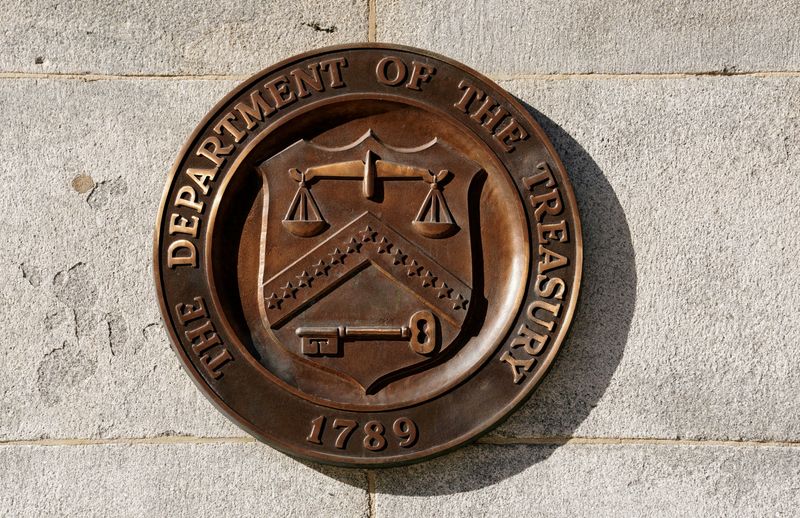By David Lawder
WASHINGTON (Reuters) - The U.S. Treasury said on Tuesday it now estimates that $80 billion in modernization and enforcement funding for the Internal Revenue Service will yield up to $561 billion in additional federal revenue over the next decade, substantially more than previously thought, due to technology and operating improvements.
The new estimates for the 2024-2034 period, contained in a new IRS analysis, compare to a previous estimate of $390 billion and assume full implementation of the supplemental IRS funding from the 2022 Inflation Reduction Act.
The reason for the expected higher revenue is that previous estimates were limited to gains directly resulting from increased IRS enforcement staffing, but Treasury said it is now incorporating the benefits of technology improvements and enhanced services that are improving voluntary tax compliance.
The new estimate also includes the "specific deterrence effect" of taxpayers who are audited reporting additional tax liabilities in subsequent years, the Treasury said.
The new revenue estimates from Treasury come as the U.S. Senate considers border security legislation that also includes aid for Ukraine and Israel. An earlier House of Representatives proposal sought to offset that funding by clawing back $20 billion from the IRS investments.
If those funds are rescinded, the Treasury said the effect would be to reduce revenue by more than $100 billion over the decade. If Congress were to adopt the Biden administration's budget proposal to add another $29.1 billion in IRS enforcement funds in 2032 and 2033, the Treasury said the revenue gains could reach $851 billion.

The Treasury's revenue estimates also come a day before the Congressional Budget Office releases new 10-year U.S. budget deficit estimates that are expected to incorporate higher-than-forecast costs for clean energy tax credits under the Inflation Reduction Act, as well as higher interest costs on the federal debt.
The CBO had always estimated a lower amount of revenue gain than the Treasury from the IRS investments due to different modeling techniques. At the time of the Inflation Reduction Act's passage in 2022, the non-partisan budget referee agency estimated an increase of about $203 billion over the 2022-2031 period.